#st tos: the doomsday machine
Explore tagged Tumblr posts
Text
that time jim kirk was this close to murdering a superior officer because he endangered his ship, didn't want to give him spock and the only thing that stopped him was that he didn't have to do it himself (and probably that he found out he had also dismissed mccoy from the bridge after it was all over)
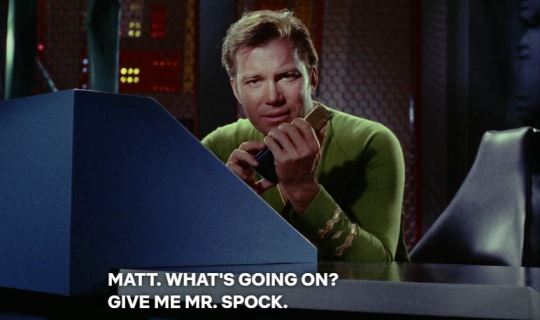

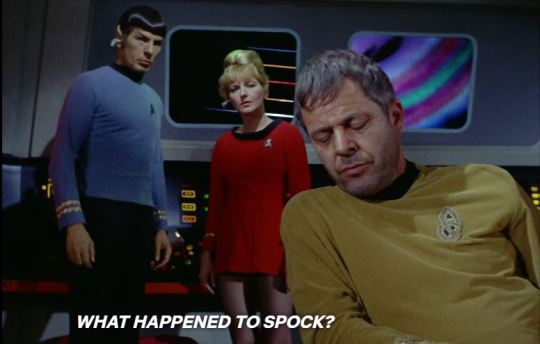
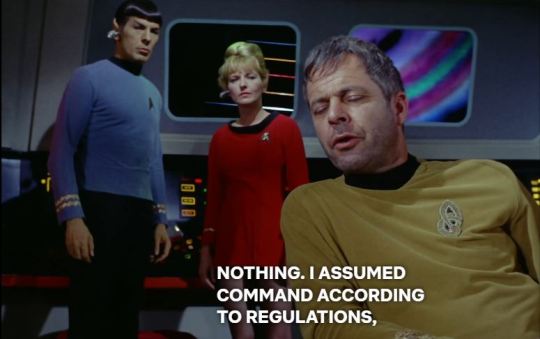

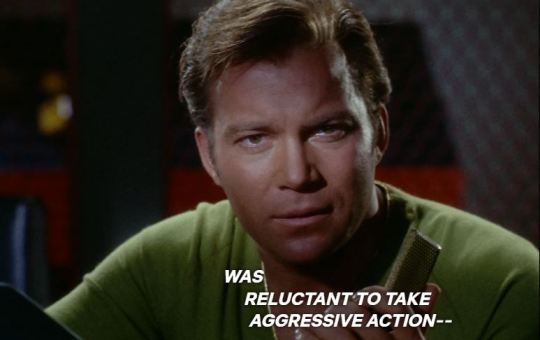
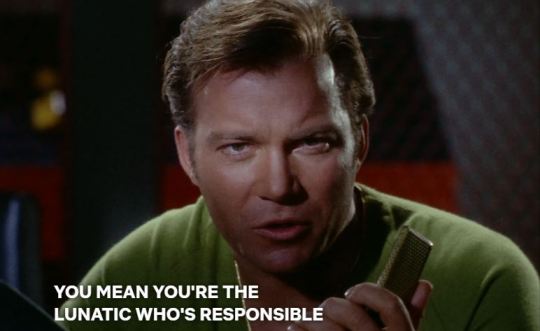
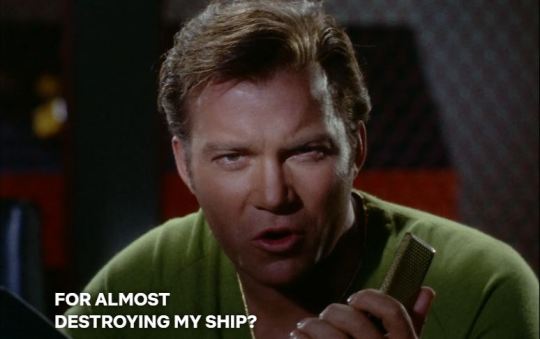
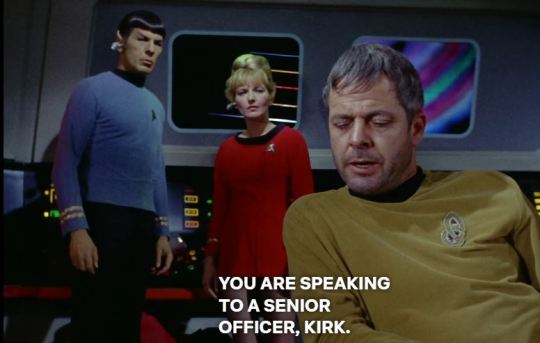
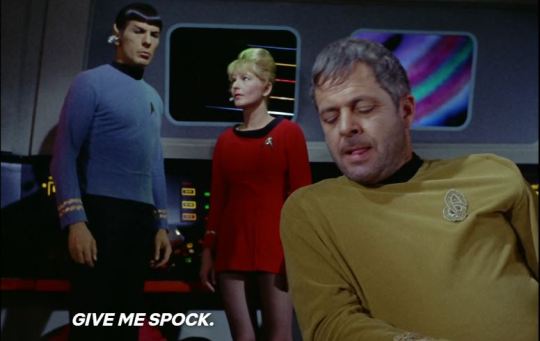
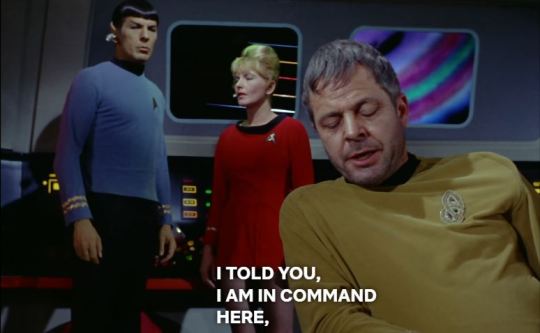
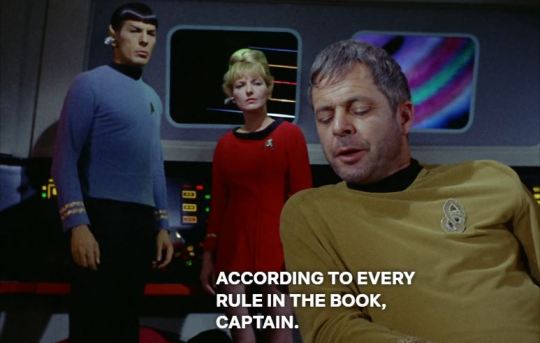
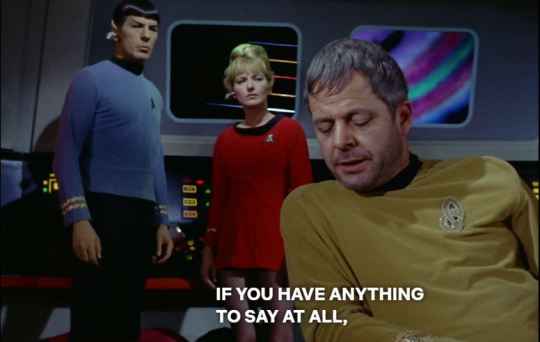
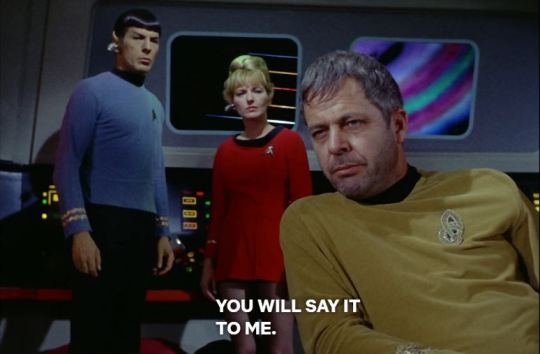
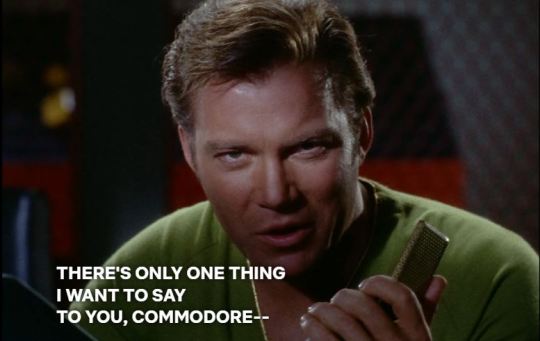
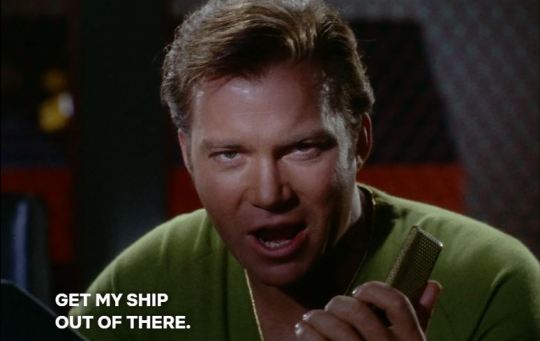
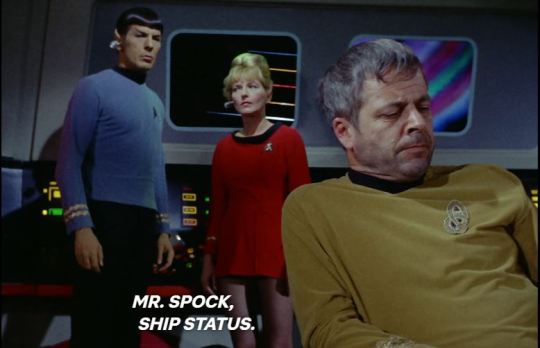
#they took his wife his husband and his boyfriend#the man was feral#jim kirk#spock#star trek tos#star trek#st tos: the doomsday machine#long post
121 notes
·
View notes
Text

174 notes
·
View notes
Text
Being in the process of watching post-TOS films right now, and having rather mixed feelings about it, there is something that probably surprises me the most about all of this. We talk a lot about AOS Kirk and even SNW Kirk (which Paramount tries to show us as the canon young Kirk) as being non-TOS-canon, very different readings of Kirk as a character, but we never really talk about the fact that Film!Kirk is an equally non-TOS-canon reading of the character.
ETA: this is going to be a very long post that I wanted to finish earlier, but my latest meltdown obviously didn't let me finish anything I had planned this week.
[there will be a bit of film criticism now, you can skip that right away and move on to criticizing Kirk's characterization… this really sounds bad, but don't get me wrong, I like post-TOS films, but they're so damn different and I want to talk about it]
The post-TOS films certainly lose all the noir and theatricality of TOS, all its épater la bourgeoisie, this legacy of old cinema (TOS, strangely enough, is completely a child of the golden age of Hollywod, and is much closer to "Casablanca" than to "Star Wars") by completely projecting itself into science fiction (which, to be honest, was the last thing TOS did at all, like they flew in space, of course, but it was such an obviously special transcendent type of space, where you would rather meet Socrates than Xenomorph) and outright militarism.
Perhaps the most shocking moment in "The Motion Picture", and my personal point of no return in the sequels, was one of the opening scenes in the Enterprise's transporter room. The ship wasn't ready to leave yet, and the transporter wasn't working properly, but two crew members were sent out of the Starfleet transporter room, and they… just died in the process (why?). This wasn't negligence on the part of the ship or the crew; it was clearly blatant negligence on the part of Starfleet, and it was presented so quickly and dryly as if it were a fairly routine situation for everyone. They were a little upset, shook their heads, and went off to more pressing matters. It was an absolutely unnecessary scene for the plot (the only thing it affects is the appearance of a vacant science officer position on the ship, which, like, could’ve been vacant anyway? these scene is generally never mentioned again, you could just not add it at all), meaningless and cruel in its absurdity, which perfectly highlights the changes in the approach to the display of violence between the 60s and 80s.
[Enterprise transporter room] RAND: Do you read me Starfleet? Override us. Pull them back! STARFLEET [OC]: Unable to receive their pattern, Enterprise. KIRK: Give it to me. Starfleet, boost your matter gain, we need more signal! ...More signal! SCOTT: We're losing their pattern. RAND: Oh, no! They're forming! WOMAN: (a scream) SONAK: (a moan) KIRK: Starfleet, do you have them? STARFLEET [OC]: Enterprise, ...what we got back didn't live long, ...fortunately. KIRK: Starfleet, ...Kirk. Please ...express my condolences to their families. Commander Sonak's can be reached through the Vulcan Embassy. There was nothing you could have done, Rand. It wasn't your fault.
All of these things were the result, in political and cultural changes, the growth of noticeable gloom in science fiction, and mostly changes that the film industry experienced after the 1960s (the rapid development of technology, the expansion of the audience, and the attempt to move away from the theatrical relic of the past to spectacular films) and in the sequels this is felt not only in the script, which emphasizes dynamic scenes and is much more simplified in literary terms, but also in the acting, which is already much more static and tied to the camera (the acting is one of the reasons why TMP is so difficult to watch, apart from the frankly weak direction and editing, and despite the pretty good [still very Roddenberry-esque with all this love is a touch but not a touch] plot, which is quite funny, because the fact that this is happening against the background of the character of Ilia, who really plays a non-human /a body/ that uses a computer, doesn’tt improve the situation in any way, because none of the actors look noticeably more alive than her, and the only glimpse of emotion in the entire film is the scenes between K/S, which is of course very sweet, but…).
First of all, this concerns Shatner, who is actually a very good theatrical actor (and criticism of his performance in TOS is completely incomprehensible to me). Where he is absolutely alive, natural, and sincere in the noir, theatrical TOS, he is exhausted, stiff, and (I'll be honest) repulsively arrogant in the films’ blockbusterness and their efforts to be dramatic. I partly attribute this to the fact that, like me, he is completely unsuited to dark hair and it turns our lives into a Nietzschean abyss, but more likely the combination of his ego and inability to realize himself played a bad joke on him, and he lost something real, really important in the pursuit of attention. But that's why the K/S interaction scenes in the films (and all the Kirk scenes that involve Spock in any way) are so surprising to me, because they're the only scenes where Shatner suddenly sheds all of his ego, arrogance, and discontent, becoming again... sweet, alive, and natural in his acting, and sincere in his absolute admiration and warm love for the one important person in Kirk's life, and it's such a contrast to his acting at other times that I'm just, I don't know, Bill, what are you doing? He just sees Spock, and bang, he becomes a completely different person. In any case, Shatner's changes and internal conflicts have their impact on the character's formation and perception in the films, but they are only part of the bigger picture.
[end of films criticism, let's move on]
"The Motion Picture", our ground zero in Kirk drift, generally sets this emphasized masculine tone in Kirk's portrayal from the very beginning, clearly departing from both his gender-ambivalence and his noir femme fatale, and becoming quite constrained even in his nature of utopian humanism. In my conversation with my sister, I joked that it was quite funny that they were trying to convince us that TOS Kirk, who had survived genocide (famine, mass murder, psychological/physical abuse, and clearly read SA) at 13, and then went through a mass massacre on a ship he served in his 20s, for which he blamed himself, had become this in a few years of paperwork. The midlife crisis had apparently erased even his traumatic experiences. I generally understand the idea they were trying to show - a real captain who is tired on solid ground and more than anything in the world wants to return to space, and even more - to his ship, the only place where he was truly happy + (this is of course not so obvious, but it's damn visible in Shatner's acting and in subsequent K/S scenes) this existing gap between him and Spock is a tangible trauma and Spock's absence in his life breaks him to pieces. But, even with this idea of growing up/(literally) returning from heaven to earth, Kirk's behavior in TMP frankly doesn't align well with his characterization in TOS.
We see several consecutive scenes of his conflict with Decker, the acting captain of the Enterprise, whom he removes from his post by order of Starfleet, and although Decker himself is a rather static character, in whose development not much effort was put, in all these scenes, he is clearly... right.
KIRK: I'm taking over the center seat, Will. DECKER: You're what? KIRK: I'm replacing you as Captain of the Enterprise. You'll stay on as Executive Officer. Temporary grade reduction to Commander. DECKER: You personally, are assuming command? KIRK: Yeah. DECKER: May I ask? Why? KIRK: My experience, five years out there dealing with unknowns like this, my familiarity with the Enterprise, this crew. DECKER: Admiral, this is an almost totally new Enterprise. You don't know her a tenth as well as I do. KIRK: That's why you're staying aboard. I'm sorry, DECKER: No, Admiral. I don't think you are, not one damn bit. I remember when you recommended me for this command. You told me how envious you were, and how much you hoped you'd find a way to get a starship command again. Well, it looks like you found a way.
KIRK: All right, explanation? Why was my phaser order countermanded? DECKER: Sir, the Enterprise redesign increases phaser power by channelling it through the main engines. When they went into anti-matter imbalance, the phasers were automatically cut off. KIRK: Then you acted properly, of course. DECKER: Thank you, sir. ...I'm sorry if I embarrassed you. KIRK: You saved the ship. DECKER: I'm aware of that, sir. KIRK: Stop ...competing with me, Decker! DECKER: Permission to speak freely, sir? KIRK: Granted. DECKER: Sir, you haven't logged a single star hour in two and a half years. That, plus your unfamiliarity with the ship's redesign, in my opinion, sir, seriously jeopardises this mission.
We are also given an emphasis on how Kirk puts pressure on his crew:
KIRK: Programming ready? DECKER: Programme set for standard warp entry, Captain, ...but I still recommend further simulation study. KIRK: Mister Decker, every minute brings that object closer to Earth! Engineering! Stand by for warp drive. SCOTT (on intercom): We need further warp simulation on the flow sensors. KIRK: Engineer, we need warp speed now! McCOY: Jim, you're pushing. Your people know their jobs.
It's not that he's never done it before, but there's a literally physically palpable difference in how and when it happened in TOS and how it happens in TMP, and how truly unjustified (apart from wanting to seem significant and controlling again) Kirk's behavior in TMP is.
He also, not particularly justified, takes a risk by allowing that weird electric thing onto the bridge, which leads to further tragic events.
KIRK: Mister Decker? DECKER: I advise caution, Captain, we can't withstand another attack. KIRK: That thing is twenty hours away from Earth. We know nothing about it yet. DECKER: That's precisely the point. We don't know it will do. Moving into that Cloud, at this time, is an unwarranted gamble. KIRK: How do you define 'unwarranted'? DECKER: You asked my opinion, sir. ... DECKER: Ilia! ...Ilia! (the probe with Ilia disappears) DECKER: This is how I define unwarranted!
In fact, this whole Kirk vs Decker situation is an obvious paraphrase of "The Doomsday Machine", where the same Kirk vs Decker conflict is played out (god, it's not even funny), but with the roles reversed. Kirk now finds himself in the role of an older, more experienced man, but it’s his self-confidence, obsession with an idea, fear of being rejected, and his apparent conflict as an authority figure against the younger and more brilliant captain (ok, it's not about TMP Decker, but you get the idea) that prevents him from being truly flexible and leads to abuse of power. Of course, TMP Kirk handles this situation better than TOS Decker (but he was also not in a state of traumatic shock after the death of his team at the time of the events).
I understand what they meant by this (ok, again), but it's such a blatant misreading of TOS Kirk as a character that I'm starting to think that even AOS Kirk at some points was read much closer to TOS Kirk (maybe not really, but even in the face of the obvious opposition between the two, AOS Kirk got his clearly existing psychological trauma/unhealthy coping patterns and (coincidentally, this was definitely not planned in the heteronormativity of the reboot) his sexual ambivalence) than Film!Kirk. Now I understand much better where this concept of the Golden Boy of Starfleet, the lucky guy who easily gets out of any situation, a kind of exemplary good young man who has had no real difficulties in life, or terrible PTSD or anything shameful, disgusting, dirty, that you want to forget, in his past, came from. The 2009 film (thank's aos) gave new life to this, clearly emphasizing the key difference between AOS/TOS Kirk - the presence of parental support (although it's not like Kirk's parents were ever actually mentioned in TOS, which makes this concept pretty meaningless in light of TOS):
KIRK: Wait. Where you came from, did I know my father? SPOCK PRIME: Yes. You often spoke of him as being your inspiration for joining Starfleet. He proudly lived to see you become Captain of the Enterprise.
And of course, there's that important line between Kirk and David in TWOK, which is obviously easy to read as "the loss of Spock has become such an all-encompassing and overwhelming grief for Kirk that nothing can compare to it" (the films unexpectedly turned out to be even more romantic than the series, which is partly exacerbated by the fact that they lose TOS in the plot and K/S becomes just the only palpably real thing on which it’s based at all), but it actually works very strangely with the TOS Kirk’s death experience, by crossing out the very existence of this:
DAVID: Lieutenant Saavik was right. You never have faced a death. KIRK: No, not like this. I haven't faced death. I've cheated death. I tricked my way out of death ...and patted myself on the back for my ingenuity. ...I know nothing.
I patted myself on the back for my ingenuity. I honestly think about these words in the context of Kirk's words in Obsession /No man achieves Starfleet command without relying on intuition, but have I made a rational decision? Am I letting the horrors of the past distort my judgment of the present?/ and it somehow doesn't fit together at all. How can a man who has lived for over 10 years with a constant paranoid sense of guilt for the deaths of about 200 people through his own mistake consider a survival experience as cheating death and commendable ingenuity? And of course, another obvious thing that doesn't fit together is his Tarsus IV experience. Even if we imagine that somehow Kirk managed to escape a truly horrific experience and that he could’ve saved his own life through trickery and ingenuity, this absolutely contradicts his characterization in TOS. He was a child (at that borderline age when traumatic experience is particularly merciless in its memories), he saw four thousand people die, he experienced a terrible famine (which is hinted at repeatedly in TOS), violence, and experiences of violation of personal physical/psychological space (which is hinted at even more in TOS). "The Conscience of the King" is a beautiful episode in its complexity, which actually gives us enough to understand how fundamentally traumatic these events are, and how much they have influenced Kirk's increasingly (humanistic) worldview:
KIRK: What were you twenty years ago? KARIDIAN: Younger, Captain. Much younger. KIRK: So was I. But I remember. Let's see if you do. Read this into that communicator on the wall. It will be recorded and compared to a piece of Kodos' voice film we have in our files... ... KARIDIAN: (reading) The revolution is successful, but survival depends on drastic measures. Your continued existence represents a threat to the well-being of society. (stops looking at the paper) Your lives means slow death to the more valued members of the colony. Therefore I have no alternative but to sentence you to death. Your execution is so ordered. Signed, Kodos, governor of Tarsus Four. KIRK: I remember the words. I wrote them down. You said them like you knew them. You hardly glanced at the paper. KARIDIAN: I learn my parts very quickly. KIRK: Are you sure? Are you sure you didn't act this role out in front of a captive audience whom you blasted out of existence without mercy? … KARIDIAN: Or is. Kodos made a decision of life and death. Some had to die that others might live. You're a man of decision, Captain. You ought to understand that. KIRK: All I understand is that four thousand people were needlessly butchered.
It honestly surprises me how a character who was written as someone who had more than one experience of mass slaughter, which he witnessed at a young age, suddenly begins to be interpreted as someone who never really encountered death, but only trickery and ingenuity avoided it. TOS Kirk is obviously a player, an actor, a pirate, and a seductress, a person who is really capable of using all available methods to survive/to save others, but all of these actions of TOS Kirk are, and this is actually well written and consistently shown to us, the result of the fact that he has really faced death, and is very well aware of what it is. This is not empty /I don’t believe in no-win scenarios/ this is a clear awareness of what price you have to pay to survive things like genocide. A person who pays that price, who goes through something like that, will never say that they have ingeniously escaped death or that they are lucky.
This reminded me of a very stupid conversation I had with my coworker about Dostoevsky, he's obviously one of my least favorite writers, and talking about him on a special level means just ruin the day, but in this conversation we touched on the topic that Dostoevsky was supposed to be executed, but at the last moment, literally before the shooting, he was pardoned, such an inhumanly cruel experience that forever broke his psyche and affected all his subsequent work, to which my coworker just said, "Exactly, he's such a lucky guy.” I thought for a long time about what to answer him, and I realized that it wasn't like I really had the words for it. Some experiences are the exact opposite of winning a lottery ticket, and living with the memories of them can be more unbearable than death itself, sometimes the price of survival is too high, but even if you get through it, it stays with you forever, and TOS actually talks a lot about these things, but it was hardly something that was really thought about in the 80s.
Spock's death would undoubtedly be the most terrifying and personally difficult experience in TOS Kirk's life, but it wouldn't be the first. It wouldn't be that first terrifying shattering, first shock of a great loss, but it would be the last straw, that point in the chain of all these endless losses and loneliness and pain, after which there would hardly be anything else. It would read much closer to the quiet absolute doom of Yanagihara's "A Little Life" ending than to what we see in TWOK. And while this scene is particularly touching for understanding the K/S relationship, it would have had much more meaning if this confession /No, not like this/ had occurred against the backdrop of Kirk's already existing horrific death experience, the reminder of which is a constant line in TOS, rather than against the backdrop of completely erasing this experience from the plot, reducing it to a simple /I cheated death because I don't believe in no-win scenarios/ simplifying both Kirk as a character and Spock's true significance in his life.
#i obviously have to apologize for the length of this text#but i think i have a lot of thoughts on this#i hope i'll be in better working shape tomorrow#it's better to have hyper-fixation than a meltdown#frances talking#long post: st#star trek#star trek tos#star trek aos#james t kirk#s'chn t'gai spock#kirk/spock#k/s#spirk#the motion picture#wrath of khan#the doomsday machine#obsession#the conscience of the king#f: poetic cinema#c: that's how you do it' by remembering who and what you are#c: logic is the beginning of wisdom' not the end#otp: two halves of one soul#st: more content from the secretly british shakespeare nerd#st: everybody suffers on a starship#(obviously) criticism of post-TOS films#tw: genocide#tw: sa mention#tw: death mention
76 notes
·
View notes
Text
truly nothing beats bonding over star trek with my uncles who i otherwise don't get along with
#we watched the doomsday machine!!#and genuinely i had so much fun#star trek#st#tos#star trek the original series#my posts
21 notes
·
View notes
Text
One of my fave things about TOS is when some Hugo-nominee episode with some amazing writing and concept is proceeded by the episode which looks like it was written by an 8-year old.
#star trek#star trek tos#st tos#not the doomsday machine being followed with catspaw#star trek is great because we can just have both you know#it is part of the fun
52 notes
·
View notes
Text
Yeah, both Deckers' conflations of righteous leadership with throwing self-absorbed tantrums during an existential crisis are one of the things that make me deeply skeptical of the whole idea that Decker got completely unjustifiably screwed over for no valid reason at all. Decker did get screwed over, but unfortunately for his ego, this was in part for some entirely valid reasons in the circumstances that are only further justified by his poor strategic advice and general conduct throughout much of the mission. His advice and behavior superficially look quite different from his brother's, but ... aren't, IMO.
[further long ramble, lol]
Commodore Decker got way more screwed over of the two of them, to begin with, though by sheer misfortune rather than a temporary demotion. And Captain Decker getting displaced without forewarning by a much higher-ranking, famously brilliant tactician with more relevant experience for a critically important mission sucks, sure, but Decker really wasn't the best qualified person for it, and "preventing the deaths of billions of people" is understandably a higher priority for Starfleet than Decker's career. It takes him most of the movie to accept that where he can most contribute to this mission is not and never was from the captain's chair. His tactical judgment would never have gotten them to where they needed to be for Decker to really even matter; it had to be Kirk in that chair, backed by Spock, for Decker to end up in a position to help save the day in a very different style than early TMP Decker could have imagined.
Commodore Decker at least is clearly a broken man by the time we meet him, if one who made a dubious decision earlier, but TMP's Decker isn't broken at all. He's not unstable or traumatized (or evil, lol); he's just caught up in his feelings and prioritizes them above the stakes of the mission (...billions of lives) for a lot of the movie. Really, of the main cast, only Kirk, Uhura, and once he shows up, Spock seem to truly grasp the urgency of the crisis until pretty late in the film.
I think Decker being too hesitant and short-sighted to deal with this crisis and Kirk genuinely being the optimal choice are suggested earlyish in the film, when Uhura insists that Kirk taking over has doubled their chance of survival. We're not told why she thinks Kirk is such an improvement over Decker for this mission, but we don't really need to be; it becomes clear enough.
I feel the point of this whole dynamic is that, broadly, the film wants to create a sense of uncertainty and tension around the outcome of the whole V'ger crisis and particularly what the best tactical approach to it is—Kirk's more daring and high risk-high reward tactics, or Decker's preference for caution and waiting for certainty. At the same time, that more abstract tactical opposition is really an extension of the personal conflict between Decker and Kirk and the question of which of them is truly compromised by ego (both have egos, but at first we don't know whose ego is the real obstacle, until Spock's arrival functionally reveals that it's Decker's). And even that conflict is mostly an illustration of Kirk's profound isolation and unhappiness, reinforced by Spock's desertion for Gol and by having Kirk's motives and fitness doubted by literally everyone around him—except Uhura.
So it's made possible for the audience to be unsure and in suspense about all this, because almost the entire cast is, but the choice of Uhura—frankly the most clear-sighted figure involved—to be the one person who is certain Kirk is the better choice by far for this mission, already offers pretty strong foreshadowing that Kirk is going to be vindicated in the long run. His motives don't have to be 100% selflessly pure for him to be far and away more qualified for this crisis.
Then as the TMP plot progresses, it seems like Decker favors what appears to be the opposite strategy as his brother. The Commodore's approach was short-sighted in an impulsive, obsessive, ultimately suicidal way that jeopardized the lives of a ton of people, while TMP Decker's is short-sighted in a cautious, hesitating, time-consuming way that jeopardizes the lives of billions of people. So it can look like TMP!Decker is "the Kirk" of the film as this more cautious, rationalistic figure opposing a risk-taking superior (and no doubt does feel that way to Decker himself). But in the big-picture sense of what's happening with V'ger, it's actually way more dangerous to delay responding and avoid risks until they have the kind of certainty Decker wants, which is what he keeps pushing Kirk to do (in the snippy Decker family style) even once Spock fixes the systems.
Decker's arc, such as it is, shifts him towards daring risky, uncertain attempts at dealing with V'ger and ultimately towards a cosmically unknown future that's pivotal to victory, but also a kind of suicide in terms of his previous existence. We end with Decker leaping into the unknown, as his brother did (which didn't save the day nearly as dramatically but did provide the crucial information needed to save the day), and with Kirk futilely pleading with him not to do it, just as he did with Matt Decker years earlier. That is, as far as their TMP roles correspond to "The Doomsday Machine," Decker's role does most closely correspond to Commodore Decker's and Kirk's to, well, Kirk's, and it's only the obfuscation of the earlier film that manages to conceal this.
I think it's significant that Kirk's tactical approach, by contrast to Decker's, doesn't really change with Spock's arrival. I've seen it argued that Spock's arrival does nudge him towards less foolhardy and more cautious decisions, but I don't agree; rather, Spock's arrival gives Kirk the tools he needs for his tactics to succeed, but his tactical approach itself doesn't much change and he continues to favor a daring, decisive, and active approach that is clearly what's required as the later film progresses. He just also needed Spock—and lbr, Kirk has never been shy about acknowledging that he needs Spock to do what he does. (Even in TMP, with Spock unavailable, Kirk was sufficiently aware of this to request another Vulcan scientist as science officer before the mission even started, however inferior a replacement literally anyone would have been; Sonak has to be killed off for the disasters of the early mission to happen.)
It's a tangent, but I think Kirk's approach to Spock throughout TMP is also markedly pretty static; the big change in their relationship follows from Spock's big epiphany. The moment Spock appears on the bridge, Kirk is visibly eager to accept and welcome him on their old terms; it's Spock who rebuffs him because of his own cultural hang-ups, and Kirk is frustrated and strained, but markedly less shocked/outraged and more willing to white-knuckle his way through than the others. Spock's other ex-friends, most conspicuously McCoy, doubt Spock's trustworthiness, but Kirk brusquely dismisses their doubts and is thoroughly vindicated when what looked like the foreshadowed betrayal from Spock is revealed to be his attempt to transmit data from V'ger to Kirk at enormous risk to himself. Kirk follows his instincts and jumps into space to be there to catch him (also the correct call, it turns out). When Spock wakes up with his emotions epiphany and gets enough of his brain cells in order to finally reach out to Kirk, Kirk is just as eager and receptive as he was when Spock first stepped onto the bridge, with no hint of recriminations or even hesitation about accepting and reciprocating the gesture. There's no point where Kirk was going to rebuff Spock or handle his relationship with him differently; the change had to come from Spock.
That's the dynamic of the film: it yanks the "Kirk arc" carpet from beneath us and shows the real tension of the film hinging far more on Spock's and Decker's arcs. Kirk is ultimately a pretty static character in the film, I think; it's much more Spock's and Decker's movie in terms of movement, just so weirdly paced that it takes awhile to get there. The later film is mostly Kirk being vindicated over and over and eventually rewarded, while Spock and Decker have their epiphanies about Kirk/Ilia and their places in the universe.
My headcanon, though, is that (Captain) Decker has actually convinced himself in TMP that what's going on is a replay of that situation from TOS, with the current Kirk as (Commodore) Decker and TMP Decker as the righteous young space captain trying to keep this higher-ranking lunatic from throwing their lives away. But the reality is that this situation does require taking major risks and making difficult judgment calls rather than delaying; time is not a luxury they have, and Kirk's calculus that it's better to try and save people, even if they fail, than to dither around doing not much of anything and let them die without even trying, is ... uh, right.
Basically, I think TMP!Decker took the wrong lesson all around from that family history, and is applying it poorly because it's easier on his ego than accepting that someone else might be a better pick for navigating an existential crisis for all of Earth. He learns better and realizes that how he can best serve the mission is very different, but it's underwritten and poorly paced, so I think he's mostly just frustrating in much the same way that Matt was, despite superficially looking for awhile like he's going to be the Kirk of the scenario.
woman-of-many-fandoms replied to this post:
Let's be real though. Decker should have been in charge and the only reason Kirk didn't get himself and everyone under his command killed was because of him. If this was TOS days and Kirk had an admiral try to take over his ship, the audience would clearly know this was the antagonist but we let it slide because we are following Kirks story.
I totally disagree, actually (as is probably obvious from my post). I think Decker is completely temperamentally unqualified for the specific crisis at hand in TMP. For a significant portion of the movie, he doesn't seem to even comprehend the stakes of the crisis for the billions of people on Earth who would have died if Kirk took most of his advice. Apart from updating Kirk on the refits, something other people could do and which is at most temporarily useful, Decker's tactics are cautious and short-sighted at a time when they (and especially Earth!) can't afford either. They had to take the kind of risks Decker opposed (and continued to oppose after Spock fixed the technical problems) to have any chance of stopping V'ger. I think Uhura was absolutely correct when she said that Kirk taking over had doubled their chances of success. Kirk is a tactical genius who is willing to question himself but decisive in a crisis, none of which is true of Decker.
Doesn't help that Decker spends 80% of his screentime caring more about his ego than the mission or the most basic kind of professionalism, but his tactics are the real problem. He'd be fine in other missions, but this was not the one for him.
#doesn't help that collins (other worse failings aside) is just not in nimoy's and shatner's league as an actor imo#tmp provides zero explanation for the kirk/spock estrangement arc that the movie fundamentally pivots on but nimoy and shatner sell it#collins does ... not. kirk and spock could absolutely be petty bitches in tos but shatner's and nimoy's performances made it delightful#collins does not have what it takes to do that#elljayvee#respuestas#long post#willard decker critical#matthew decker critical#james t kirk#spock#nyota uhura#c: who do i have to be#c: i object to intellect without discipline#c: i half believed it myself#star trek: the motion picture#st fanwank#anghraine rants#anghraine's headcanons#star trek: the original series#tos: the doomsday machine#tos: s2#i do sometimes wonder if the movie is just underwritten and badly paced and unwilling to fully commit to kirk being the problem#but uhura as the lone voice in the wilderness and the emphasis on everyone else turning their back on him for no known reason#and acting like his and uhura's sense of urgency re: v'ger is irrational and suspicious despite it being objectively correct#and virtually everything that follows from spock's arrival on the enterprise#inclines me to think the kirk -> spock and decker protagonist arc bait-and-switch is deliberate and just very weirdly paced#(i also don't generally incorporate the films into my tos fic but i'm tempted by the captain uhura-dr. kirk au version of tmp sometimes#a beleaguered admiral uhura dealing with decker's fuckery and everyone hyperscrutinizing her motives for trying to save the planet#while kirk zooms back to his previous troi-like position at her left hand and privately is like THANK GOD YOU'RE BACK we might not all DIE)
28 notes
·
View notes
Text
st tos S2 E6&7
cause I didn’t have many notes on either so I decided to combine them.
S2E6 The Doomsday Machine aka THE WITHERSTORM vs coughing captain
“Doctor you are out of line.” Bones: “So are you!” *looks away then whips head back* “Sir!”
Oh the more and more this series goes on the more and more I like Bones. He knows that this is “we should listen to Spock” time.
Why is other captain guy eating the tape.
S2E7 Catspaw AKA the first contact with aliens from another galaxy and this is how it goes
Kirk womanizing for good. He’s doing that thing where a woman rizzes up a dude for information but he’s a man. Chat is this grooming Yeah no I think this is by definition grooming but it’s in self defense so I’ll allow it
I really enjoy Mr chekov
The ruthless car 🐈⬛ stomps through the halls
and that’s all. Enjoy next time where I watch episode 8
8 notes
·
View notes
Photo





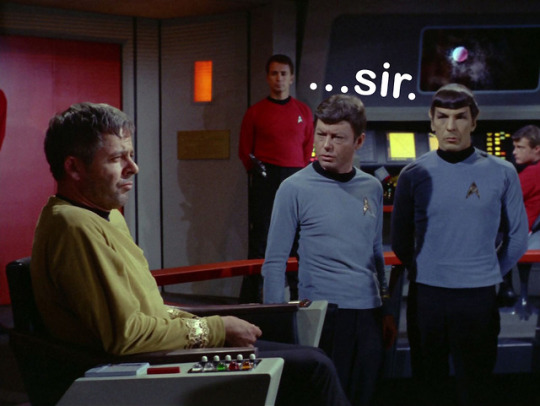
I will watch at least 7 seasons of Reno & Bones
#star trek#star trek tos#star trek discovery#leonard mccoy#jett reno#star trek disco#star trek dsc#st: dsc#such sweet sorrow part two#the doomsday machine#bones mccoy#discovery spoilers#star trek discovery spoilers#star trek disco spoilers#they would either be best friends or hate each other because they are too similar
497 notes
·
View notes
Text
I’ve rewatched “The Doomsday Machine” (Star Trek: The Original Series, season 2, episode 6). And it’s a little bit strange… I mean, on the one hand, it’s about a huge thing destroying everything on its way. On the other hand, it’s about a nasty and not very clever commodore which takes the command of the Enterprise and nearly destroyed it. And it seems that the second part is more important. ((Spoilers!) Well, to be honest, we found out that the Commodore wasn’t nasty he just felt very guilty for the death of his crew and then he even commits suicide.)
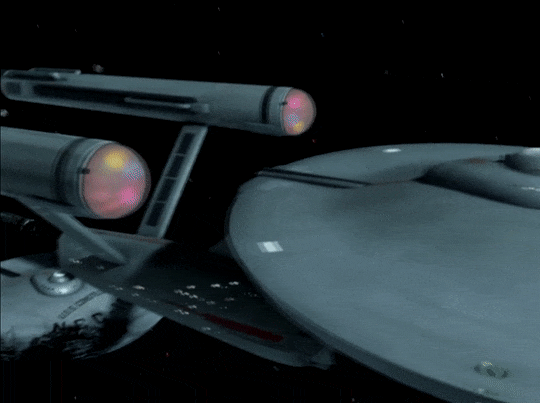
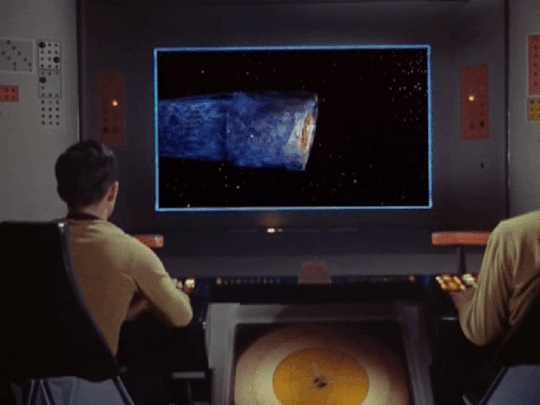
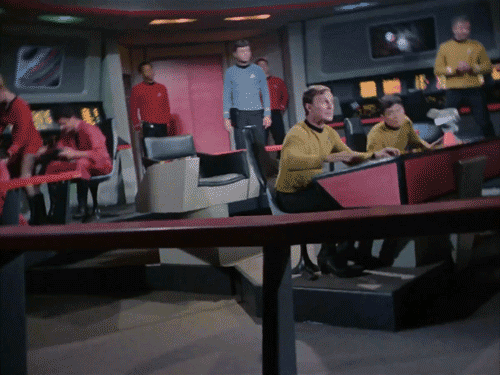
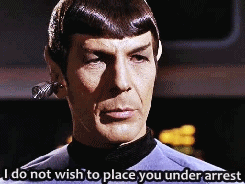
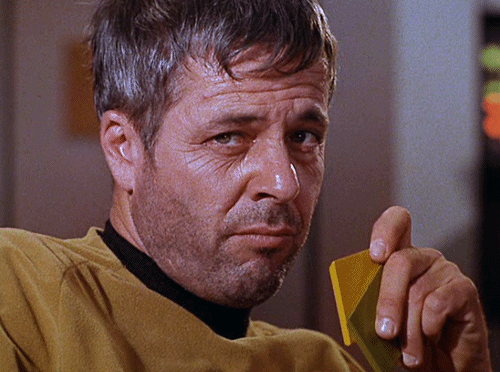
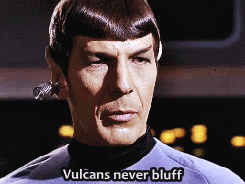
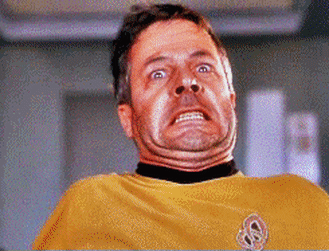
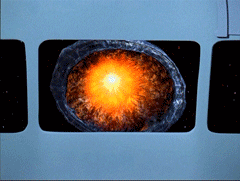
#star trek#star trek the original series#star trek tos#st tos#st the original series#the doomsday machine#tos rewatch#captain kirk#james t. kirk#jim kirk#mr spock#commander spock#commodore decker
13 notes
·
View notes
Photo
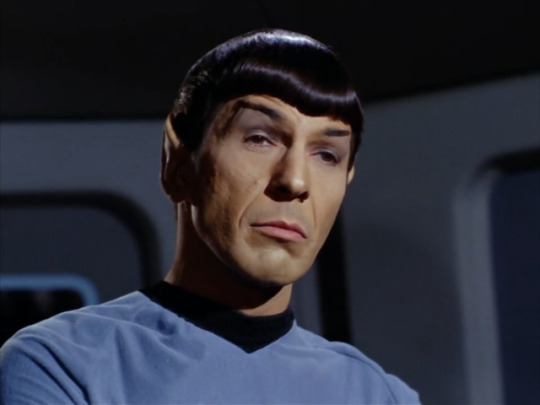
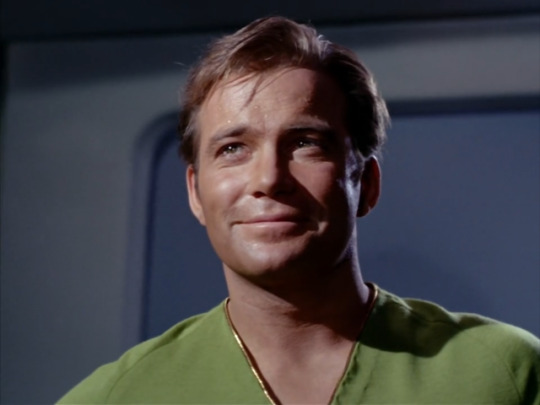
i can’t believe Jim Kirk invented being in love
#heart eyes motherfucker#st: tos#star trek#space husbands#star trek tos#star trek the original series#tos rewatch#s02e06#the doomsday machine#k/s#kirk x spock#spirk#tos spirk#james tiberius kirk#jim kirk#spock#s'chn t'gai spock#my post#screencaps#tos screencaps
2K notes
·
View notes
Text

135 notes
·
View notes
Text
❖
#&&. ooc / idle chatter on the comms.#( i am having massive amounts of kirk feels )#( articulating the sheer amount of feel is impossible as i just want to asdfghjkl & lay on the floor )#( jojo dont read this spoilers lay beyond for all things kirk most ranting tho )#( both tos & aos kirk like i’m dying )#( tarsus iv ; obsession ; mitchell ; khan & so much more !! )#( like court martial ; the shit with the plantonians ; the triskelion gamesters ; doomsday machine terror ; tholian web scare#; living with having to lose bones to a terminal condition ; NEARLY LOSING BONES TO TORTURE ; almost losing spock ;#theN FUCKING LOSING SPOCK WHEN KHAN COMES BACK OR DYING A HORRID RADATION INFUSED DEATH & BEFORE THAT WATCHING THE ONLY PARENTAL FIGURE WHOS#GIVEN A SHIT ABOUT HIM DIE ! )#( plus the real kicker to the mf feels ;#IVE ALWAYS KNOWN ILL DIE ALONE ! )#( -insert miss kiesha vine reference bc i’m fucking dead- )#( my st rewatch has gotten to that point yes )#( & knowing what comes LATER HAS ME AGJBKOVXKR !!!! )#( my ooc tag is idle chatter on the comms ; this is more like screaming on the comms )#( bc nope canon can suck it & natural process of liffe as well bc all my faves are still alive & healthy & together with their loved ones )
3 notes
·
View notes
Photo
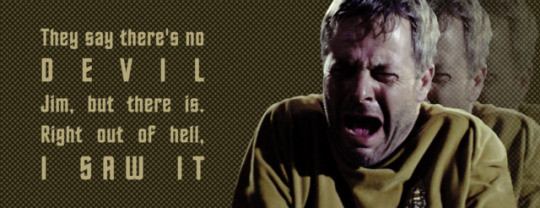
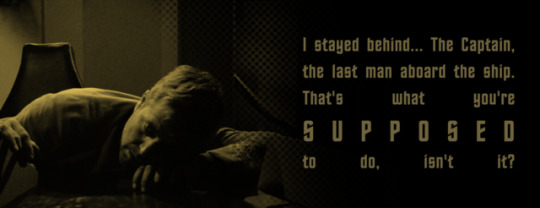
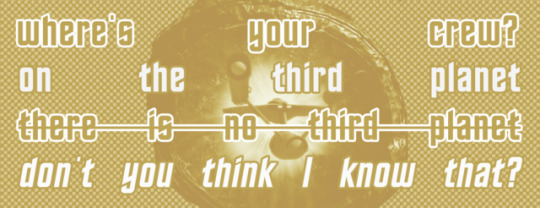
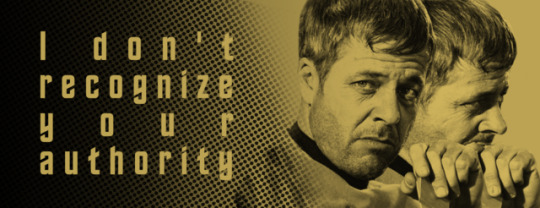
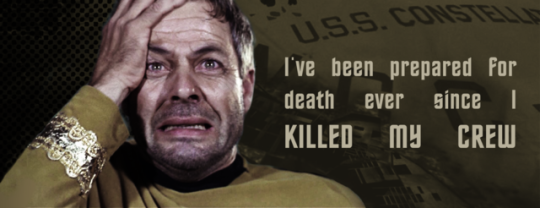
fave star trek one-off characters 1/?: Commodore Matt Decker 2.06 “The Doomsday Machine”
“The commander is responsible for the lives of his crew, and for their deaths. Well, I should have died with mine.”
#startrekedit#trekedit#star trek tos#star trek the original series#the doomsday machine#tos#star trek#matt decker#st fave char#my graphics
25 notes
·
View notes
Text
ST TOS 2X06 The Doomsday Machine
This was the most exciting episode of S2 so far.
There were two main themes: a not so veiled commentary on the Cold War and what happens to a captain when his whole crew dies.
The Cold War and the H-Bomb
I was very surprised when they started talking about events that were contemporary to the viewers (the episode first aired in 1967), taking for granted that nothing was going to come out of the Cold War and the H-Bomb.
TOS also takes a stance against the Cold War with adding a Russian character to the show, Chekov, but this felt different.
It was so... Optimistic. And reassuring.
I can imagine that the first viewers could only feel hope for the future after such an episode.
The captain is the last one to abandon the ship
I was very impressed by William Windon’s performance as Commodore Matt Decker. The scene when he recounts of how his crew begged, begged for help and he could do nothing but listed!
"Matt, where's your crew?" "On the third planet." "There is no third planet." "Don't you think I know that? There was, but not any more!"
He is such a compelling character. You alternately feel pity and anger for him, as the episode unfolds. Apparently, in a previous draft, he was not meant to die but to talk with Kirk and repent for his sin of overtaking the Enterprise, but in my personal opinion, his story is a tragedy and his self-sacrifice was the only fitting ending to it.
But, as I watched him (not) coming to terms with the loss of his crew, I could not help thinking about Kirk. What would Kirk do if he were to lose the Enterprise? If he was to become the last man on the ship?
I think that he would not react very differently from how Commodore Decker reacted.
And this made me pity the Commodore even more.
3 notes
·
View notes
Conversation
spock: [in a small voice] jim,
me: How Dare You Make Me Listen To This
#kirk's gonna blow up the Death Star 😱#tos liveblog#the doomsday machine#st liveblogs: greatest hits
5 notes
·
View notes
Text
The Essential Star Trek Chronology SPOILER WARNING
ST: E Season One: Episodes 1, 2, 5, 7, 11, 14, 15, 16, 17, 19, & 26 (Broken Bow I & II, Unexpected, The Andorian Incident, Cold Front, Sleeping Dogs, Shadows of P’Jem, Shuttlepod One, Fusion, Acquisition, & Shockwave I)
ST: E Season Two: Episodes 1, 2, 3, 4, 15, 16, 19, 22, 23, 24, 25, & 26 (Shockwave II, Carbon Creek, Minefield, Dead Stop, Cease Fire, Future Tense, Judgement, Cogenitor, Regeneration, First Flight, Bounty, & The Expanse)
ST: E Season Three: Episodes 1, 2, 4, 5, 6, 7, 8, 10, 11, 13, 14, 15, 17, 18, 19, 20, 21, 22, 23, & 24 (The Xindi, Anomaly, Rajiin, Impulse, Exile, The Shipment, Twilight, Similitude, Carpenter Street, Proving Ground, Stratagem, Harbinger, Hatchery, Azati Prime, Damage, The Forgotton, E2, The Council, Countdown, & Zero Hour)
ST: E Season Four: Episodes 1, 2, 3, 4, 5, 6, 7, 8, 9, 12, 13, 14, 15, 16, 17, 18, 19, 20, 21, & 22 (Storm Front I & II, Home, Borderland, Cold Station 12, The Augments, The Forge, Awakening, Kir’Shara, Babel One, United, The Aenar, Affliction, Divergence, Bound, In a Mirror, Darkly I and II, Demons, Terra Prime, & These are the Voyages…)
Star Trek: Discovery
Star Trek: The Original Series
ST: ToS Season One: Episodes 1, 6, 8, 10, 15, 16, 18, 22, 24, 27, & 28 (Where No Man Has Gone Before, The Naked Time, Balance of Terror, Dagger of the Mind, The Menagerie I & II, The Squire of Gothos, The Return of the Archons, Space Seed, Errand of Mercy, City on the Edge of Forever
ST: ToS Season Two: Episodes 2, 3, 5, 6, 10, 13, 15, & 16 (Metamorphosis, Friday's Child, Amok Time, Doomsday Machine, MirrorMirror, The Trouble with Tribbles, Journey to Babel, & A Private Little War)
ST: ToS Season Three: Episodes 4, 9, 11, & 23 (The Enterprise Incident, The Tholian Web, Day of the Dove, & All Our Yesterdays)
Star Trek II: The Wrath of Kahn
Star Trek III: The Search for Spock
Star Trek IV: The Voyage Home
Star Trek VI: The Undiscovered Country
ST: TNG Season One: Episodes 1, 2, 3, 5, 6, 10, 12, 13, 15, 20, 23, 25, & 26 (Encounter at Farpoint, The Naked Now, The Last Outpost, Where No One Has Gone Before, Hide and Q, The Big Goodbye, Datalore, 11001001, Heart Of Glory, Skin of Evil, Conspiracy, & The Neutral Zone)
ST: TNG Season Two: Episodes 3, 7, 8, 9, 10, 13, 14, 16, & 20 (Elementary, Dear Data, The Enemy, A Matter Of Honor, The Measure Of A Man, The Defector, Time Squared, The Icarus Factor, Q Who?, & The Emissary)
ST: TNG Season Three: Episodes 8, 13, 15, 16, 17, 21, 22, 23, & 26 (The Price, Déjà Q, Yesterday’s Enterprise, The Offspring, Sins of the Father, Hollow Pursuits, The Most Toys, Sarek, & The Best Of Both Worlds I)
ST: TNG Season Four: Episodes 1, 2, 3, 5, 6, 7, 8, 11, 12, 20, 21, 23, 24, & 26 (The Best Of Both Worlds II, Family, Brothers, Remember Me, Legacy, Reunion, Future Imperfect, Data’s Day, The Wounded, Qpid, The Drumhead, The Host, The Mind’s Eye, & Redemption I)
ST: TNG Season Five: Episodes 1-4, 6-8, 14, 16, 18-19, & 23-26 (Redemption II, Darmok, Ensign Ro, Silicon Avatar, Disaster, Unification Parts I & II, Conundrum, Ethics, Cause And Effect, The First Duty, IBorg, The Inner Light, The Next Phase, & Time’s Arrow I)
ST: TNG Season Six: Episodes 1, 4-8, 10-11, 14-17, 20-21, & 23-26 (Time’s Arrow II, Relics, Schisms, True Q, Rascals, A Fistful of Datas, Chain Of Command I & II, Face Of The Enemy, Tapestry, Birthright I & II, The Chase, Frame of Mind, Rightful Heir, Second Chances, Timescape, & Descent I)
ST: DS9 Season One: Episodes 1-3, 6-8, 11-13, 17, & 19-20 (Emissary, Past Prologue, Captive Pursuit, Q-Less, Dax, The Nagus, Vortex, Battle Lines, The Forsaken, Duet, & In the Hands of the Prophets)
ST: TNG Season Seven: Episodes 1, 4-5, 9-12, 15, 18-22, 24-26, (Descent II, Gambit I & II, Inheritence, Parallels, The Pegasus, Lower Decks, Eye of the Beholder, Genesis, Journey’s End, Firstborn, Bloodlines, Preemptive Strike, & All Good Things…)
ST: DS9 Season Two: Episodes 1-3, 5, 7-8, 12, 14-15, 20-21, 23, & 25-26 (The Homecoming, The Circle, The Siege, Cardassians, Rules of Acquisition, Necessary Evil, The Alternate, Whispers, Paradise, The Maquis I & II, Crossover, Tribunal & The Jem’Hadar)
ST: DS9 Season Three Pt. 1: Episodes 1-3, 5, 9, 11-12, & 16-17 (The Search I & II, the House of Quark, Equilibrium, Second Skin, The Abandoned, Civil Defense, Defiant, Past Tense I & II, Prophet Motive, & Visionary)
ST: Voy Season One Pt. 1: Episodes 1-3, 5, & 7 (Caretaker I & II, Parallax, Phage, & Eye of the Needle)
Star Trek: Generations
ST: DS9 Season Three Pt. 2: Episodes 19-21, & 26 (Through the Looking Glass, Improbable Cause, The Die is Cast, & The Adversary)
ST: Voy Season One Pt. 2: Episodes 11-14 &16 (State of Flux, Heroes and Demons, Cathexis, Faces, & Learning Curve)
ST: DS9 Season Four: Episodes 1-2, 4, 7-8, 10-12, 14-16, 18-20, 23, & 26 (The Way of the Warrior, The Visitor, Hippocratic Oath, Starship Down, Little Green Men, Our Man Bashir, Homefront, Paradise Lost, Return to Grace Sons of Mogh, Rules of Engagement, Hard Time, Shattered Mirror, To the Death, & Broken Link)
ST: Voy Season Two: Episodes 1, 3, 5, 10-11, 16, 18-19, 21, & 26 (The 37’s, Projections, Non Sequitur, Cold Fire, Maneuvers, Meld, Death Wish, Lifesigns, Deadlock, Resolutions, & Basics I)
ST: DS9 Season Five Pt. 1: Episodes 1-4, 6, & 9-12 (Apocalypse Rising, The Ship, Looking for par’Mach in All the Wrong Places, Nor the Battle to the Strong, Trials and Tribble-ations, The Ascent, Rapture, The Darkness and the Light, & The Begotton)
ST: Voy Season Three Pt. 1: Episodes 1-2, 4-5, & 8-11 (Basics II, Flashback, The Swarm, False Profits, Future’s End I & II, Warlord, & The Q and the Grey)
Star Trek: First Contact
ST: DS9 Season Five Pt. 2: Episodes 14-16, 19-23, & 26 (In Purgatory’s Shadow, By Inferno’s Light, Doctor Bashir’ I Presume, Ties of Blood and Water, Ferengi Love Songs, Soldiers of the Empire, Children of Time, Blaze of Glory, & Call to Arms)
ST: Voy Season Three Pt. 2: Episodes 17, 21-22, & 25-26 (Unity, Before and After, Real Life, Worst Case Scenario, & Scorpion I)
ST: DS9 Season Six: Episodes 1, 3-7, 9-10, 12-13, 18-19, 21 & 26 (A Time to Stand, Sons and Daughters, Behind the Lines, Favor the Bold, Sacrifice of Angels, You Are Cordially Invited…, Statistical Probabilities, The Magnificent Ferengi, Who Mourns for Morn?, Far Beyond the Stars, Inquisition, In the Pale Moonlight, The Reckoning, & Tears of the Prophets)
ST: Voy Season Four: Episodes 1-4, 6-9, 11-12, 14-16, 18-19, 21, 23, 25, & 26 (Scorpion II, The Gift, Day of Honor, Nemesis, The Raven, Scientific Method, Year of Hell I & II, Concerning Flight, Mortal Coil, Message in a Bottle, Hunters, Prey, The Killing Game I & II, The Omega Detective, Living Witness, One, & Hope and Fear)
ST: DS9 Season Seven: Episodes 1-3, 5-10, 12, & 16-26 (Image in the Sand, Shadows and Symbols, Afterimage, Chrysalis, Treachery, Faith and the Great River, Once More Unto the Breach, The Siege of AR-558, Covenant, It’s Only a Paper Moon, The Emperor’s New Cloak, Inter Arm Enim Silent Leges, Penumbra, ‘Til Death Do Us, Strange Bedfellows, The Changing Face of Evil, When It Rains…, Tacking Into the Wind, Extreme Measures, The Dogs of War, & What You Leave Behind)
ST: Voy Season Five: Episodes 1-2, 4, 6, 10, 15-16, 18, 24, & 26 (Night, Drone, In the Flesh, Timeless, Counterpoint, Dark Frontier I & II, Course: Oblivion, Relativity, & Equinox)
ST: Voy Season Six: Episodes 1-2, 4, 9-10, 12, 16, 24 & 26 (Equinox II, Survival Instinct, Tinker Tenor Doctor Spy, The Voyager Conspiracy, Pathfinder, Blink of an Eye, Collective, Life Line, & Unimatrix Zero I)
ST: Voy Season Seven: Episodes 1-6, 9-12, 14, 16-26 (Unimatrix Zero II, Imperfection, Drive, Repression, Critical Care, Inside Man, Body and Soul, Flesh and Blood I & II, Shattered, Lineage, Prophecy, Workforce I & II, Human Error, Q2, Natural Law, Homestead, Renaissance Man, & Endgame)
Star Trek: Nemesis
Star Trek: 2009
Star Trek: Into Darkness
Star Trek: Beyond
4 notes
·
View notes